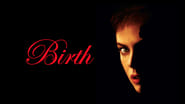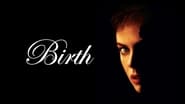johnnyboyz
Regardless of what you think of the film itself, "Birth" is almost certainly a fascinating insight on how we, in the West, 'do' tales about reincarnation and death. Lining it up against something from the East, such as 2010 Thai film "Uncle Boonmee Who Can Recall His Past Lives", reveals an unparalleled distinction in Eastern and Western attitudes towards all manner of items associated with grief, death and rebirth. One would be hard pressed not to classify Birth as a horror film for something like ninety per-cent of its runtime, but for the remaining ten it's something of a character piece pertaining to be about the grieving process and how recovering through such a thing is more of a mammoth task than one would imagine. The film feels that, with the inherent content at the centre of its revolving around the ambiguity as to whether someone has actually come back to life through a ten year old boy, such content needs to play out with horror convention and a real sense of unease – as if this is a happening to be afraid of. Cut to Apichatpong Weerasethakul's aforementioned Thai film and how the people within exhibit indifference; how they react to ghosts, spirits and those of whom are quite clearly once again on Earth after having died such is the cultural and religious attitude.This isn't to say one approach is 'right' and the other 'wrong'; both films are as slow and as burning as each other – it's just that we find the Asian one more-so out of our unfamiliarity. Each of them are, in a sense, thrillers but they are thrillers which come with the hushed atmospheres and the sorts of differing brands of eeriness that only two films from continents as polarised as Europe/America and Asia are. Throughout Birth, there seems to be an on-going Civil War playing out as to whether we view it as a flash-in-the-pan pedophobic American chiller that does well to invoke The Omen and The Shining (complete with early 'bouncing the ball against the blank wall' homage), epitomised in Desplat's score which rages between moody and cheery, or as something exactly that: a joyous piece fascinated by this miracle and by the revelations that reincarnation has hit these people.Jonathan Glazer directs here; an Englishman whose lone previous work was Sexy Beast and of which was a similarly twisting, turning thriller that burnt slowly and took its time in spite of the fact it too was prone to accusations being a knock-off genre film with too many familiarities. Like Sexy Beast, the film opens with a long unbroken take; but the bright and clear sunshine of an Andalucian coast has been traded in for the snowy doldrums of a New York City winter as a jogger goes about his course before collapsing and dying. Ten years pass and we learn he was once married to Nicole Kidman's character, Anna; a woman who has since rediscovered love in Joe (Huston) and is on the cusp of marrying him after a very long time toying with such an idea. Anna is, in spite of her past tragedy, living the good life in her marble imbued New York apartment with a man who loves her a great deal. Her romanticised introduction, wherein a birthday party for her elderly mother is bathed in the sorts of melodramatic pleasures one associates with all truly terrible films were they not on occasion doing it so knowingly, is a deceptive cover masking both the inner turmoil and strife that lingers as a result of the opening death.Out of nowhere, a young boy named Shaun (Bright) who lives on the floor above approaches her and informs her that HE is that dead man and that he has been reincarnated as this young boy in the here and now. What keeps things burning is the film's obligation for the characters to first confront the parents in asking them what's up and there are hushed, suspicious tones where ordinarily there should be spot-quiz investigations which would solve the problem in five minutes. From here a somewhat frightening, even if it doesn't necessarily have any right to be so born out of the earlier points, often highly engaging tale of distrust; disbelief and a lot of level headed characters reacting somewhat accordingly given the film's big payoff in reaction to Shaun's revelation, plays out. There feels as if there ought to be more inherent in how Shaun is quite evidently of a lower 'class' than Anna and her present partner, a rough looking boy whose parents are evidently not as well off as Anna and Joe, but live in the same building anyway. A point is made as to how Anna's first husband seemed to resent religion and disbelieved in reincarnation – is there a cruel irony in bringing him back anyway, and in a worse off position than his one-time wife? Glazer's film is about an American woman burying the nastiness of her past with an 'idyllic' lifestyle that suddenly has a face/foe from the past turn up on her doorstep and offer her revelations/ideas which can only drag her back into the fires of before. This is ultimately the same set up as Sexy Beast, albeit without the ambiguity as to how the confrontation will end: you always sense something has to give in Birth, not so in Sexy Beast. If the 2000 effort was a proposition about a heist, we genuinely sensed it might come second or even third to the primary content. Here, the outlandish proposal IS the primary content, but it doesn't suffer so much that it renders the exercise 'bad' - merely inferior to his last project. Regardless, Birth is a taut thriller that is hard not to enjoy.
sseanbarr
This film is something I would recommend almost anyone, and I do not say this lightly. It is so well done and the Director and DP are highly talented individuals! The film is shot beautifully, with the Director showing his willingness to PUSH things into the realm of serious avant-garde, (at least these days!) with regards the length of his close-ups, and also his having characters express emotion in a very very understated manner a lot of the times. I am talking about the faces of the people around Anna while they are being obviously SHOCKED by what this strange boy knows!! The score is magnificent and I would love to buy it on Cd and probably will. The production design I found to be top notch also, even if it was not necessarily a difficult challenge to most people's minds. The acting of ALL principals was terrific, and Bacall was a real treat I must say!! Nicole Kidman although ever so slightly understated in conveying desperately intense emotions,nevertheless manages to make us understand the power of what she is feeling. I would guess that her performance was probably driven by the Director due to the fact that I KNOW she can be far more intense when she wants to (Australia). Huston is great as the poor guy who is blind-sided by this fascinating and interestingly enough TRUE SCENARIO (it happens is what I mean). Reincarnation is a fact of our existence that I have NO DOUBTS ABOUT ANYMORE, I only wonder if the scenario in this picture is within the realm of possibility due to the fact that we usually have at the very least SEVERAL years go by if not a century before we incarnate in this dimension. So beyond the fact that I question the logic of the idea, the only problem I have with this aesthetically highly satisfying picture is the ending which left me cold because I wanted things to turn out differently for Sean And Anna. Regardless of that disappointment I hope you make sure to see this wonderfully filmed, beautifully scored work of modern art, and then return to this site to discuss your views!!
tieman64
"Sorrow makes us all children again." - Ralph Emerson Jonathan Glazer's "Birth" stars Nicole Kidman as Anna, a woman whose husband died ten years earlier. Though still mourning her husband's passing, Anna begins a relationship with Joseph, whom she somewhat reluctantly plans to marry. Things get complicated, however, when a ten year old boy enters Anna's life. She doesn't know him, but the boy claims to be her long dead husband. Much creepiness, confusion and mystery then ensues."Birth" was written by Jean-Claude Carriere, who worked on a number of Luis Bunuel's scripts ("Belle de Jour", "The Milky Way", "The Discreet Charm of the Bourgeoisie", "The Phantom of Liberty", "That Obscure Object of Desire"). Like most of those films, "Birth" eventually becomes a meditative inquiry, the ten year old boy becoming a manifestation of Anna's grief and pre-marital anxieties. He is a weight tying her to the past, an anchor preventing her from moving on. In a very real sense, his birth prevents her rebirth.It's important to remember that Carriere often writes about issues of theology and has even interviewed the Dalai Lama several times. So look closer, and "Birth" is very much about faith, belief and even fundamentalism. In this regard, the film revolves around twin beliefs; Anna's absurd belief that the boy is her husband reborn, and the boy's belief that he can be her husband if only he ritualistically love her like a husband should. For obvious reasons, both beliefs are presented as being, not only irrational, but highly transgressive, veering into paedophilia in Anna's case and peripubescent teleiophilia in the boy's case. But both transgressions are also shown to be surmountable, the film echoing Blaise Pascal's famous advice to those who struggle with faith: when in doubt, ritualistically kneel down and pray until faith comes to you. This, of course, echoes numerous self-help mantras: "Believe until you believe", "Fake it until you make it", "Practise makes perfect" etc. What the film says, though, is that, not only is belief less dependent on the subject's critical judgement than on habit, but that belief always serves to delay the inevitable. Belief always delays realisation and defers (unattainable) satisfactions and expectations. Belief, then, is the postponement of the trauma of belief. In this regard, Anna not only feigns love in order to postpone the realisation that the boy is not her husband, but feigns love in order to delay having to feign love for a new man, the Biblically named Joseph. The film then ends with Anna on a beach, tearfully embracing her new husband. She will fake it with him until she believes it. The difference is, now she's learnt she never will. This is Antonioni/Kubrick territory ("Beyond The Clouds", "Identification of a Woman", "Eyes Wide Shut" etc): our only means of being guilty is by giving way to desire, and the only way that one can truly love another is by absolving them of the burden of believing in that love.For three quarters of its running time, "Birth" is a masterful picture. This is a type of high-brow "European psychodrama" which all but died in the 1960s. Elsewhere it resembles the moody horrors of early Polanski ("Repulsion", "The Tenant" and "Rosemary's Baby", Kidman even sporting a Mia Farrow haircut) and late Kubrick (The Shining", "Eyes Wide Shut"), with a little Hitchcock thrown in. Shot by cinematographer Harry Savides (the sublime "Elephant"), it's a gorgeous film, filled with elegant passages, enchanting moments, and spooky, stealthy camera movements.Unfortunately the film's final act is a mess, "Birth" degenerating into merely a classier version of "The Sixth Sense", topped off by a generic "beach ending" reminiscent of Truffaut's "400 Blows" and Fellini's "La Dolce Vtia". And so by the film's climax, the audience is offered one of two readings. Either there genuinely was a reincarnation, the boy halting his romantic pursuits simply because he realised that he was unfaithful to his wife in his prior life, or there was no reincarnation, the boy concocting an elaborate plot because of his infatuation with Anna. The latter reading is the more interesting, as it suggests that the boy's fantasies stem from his poverty. This again is a common Jean-Claude Carriere theme; the pauper child wants to live in Anna's world of wealth and elegance, but cannot have it because he refuses to be the bastard her husband was.Watch the film a second time, though, and neither reading enhances the film or adds nuance to what we see unfold. Instead, our newfound knowledge seems to push "Birth" toward the phony and the unsatisfying. In a way, this is thematically fitting. The con job the kid plays on Anna is akin to the con job this film plays on its audience. It's all outer appearances and outer beauty, all of which masks the fact that there's nothing present except for the longing of presence.8/10 – See Agnieszka Holland's similarly themed "Olivier, Olivier". Worth two viewing.









